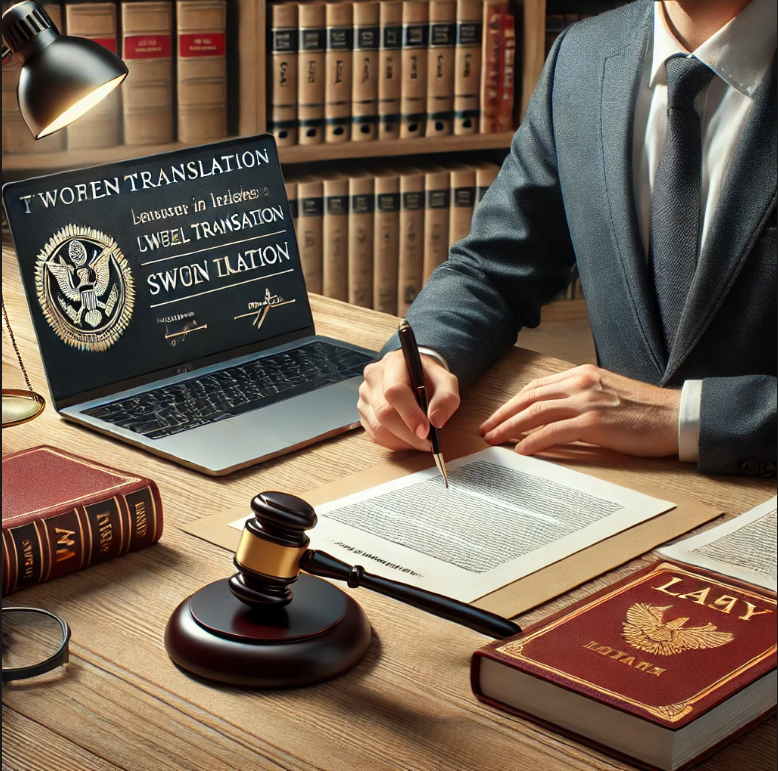
Sworn translations are essential in legal, administrative, and academic fields. They ensure the official validity of translated documents. Unlike simple translations, only accredited translators can perform them. A sworn translation is certified as equivalent to the original document in the target language. This article explores their purpose, when do we need them, and why they matter.
What are sworn translations?
A sworn translator attests these translations, with authorization from a Ministry of Foreign Affairs, a court, or a government institution. This type of translation usually includes the translator’s signature and stamp, as well as a declaration of fidelity to the original document. In many countries, only accredited translators can produce sworn translations, thus guaranteeing their authenticity and legal validity.
A sworn translation carries official status and institutions recognize it as legally valid. Public and private entities often require these translations for legal proceedings, immigration procedures, academic degree recognition, and other administrative processes.
When do we need sworn translations?
Various official situations require this kind of translation when submitting documents in a language other than the original. Some of the most common cases include:
– Legal and Judicial Documents: Contracts, court judgements, wills, powers of attorney and adoption documents are some examples of documents that may require a sworn translation to be recognised in another country.
– Identification and Personal Documents: Passports, birth, marriage and death certificates, as well as criminal records, often require a sworn translation when presented to foreign institutions.
– Immigration and Naturalisation Procedures: Many embassies and consulates require sworn translations of official documents when applying for visas, residence permits or naturalisation.
– Education and Recognition of Degrees: Diplomas, academic certificates, transcripts and university degrees must be translated in a sworn manner for validation in other countries or for admission to foreign institutions.
– Business and Commercial: In mergers, acquisitions or international contracts, so they ensure that documents are legally valid in different jurisdictions.
What is the purpose of sworn translations?
sworn translations ensure that documents in another language retain legal validity and gain acceptance by competent authorities. The certified translator’s certification verifies the authenticity and accuracy of the translation, confirming that the content remains faithful to the original without alterations.
This sort of translation serves key functions. They make documents legally valid abroad, ensuring official recognition in foreign countries. They facilitate administrative and legal processes, such as the homologation of studies, validation of contracts, and proper submission of documents to government institutions. Additionally, sworn translators ensure that translations accurately reflect the content of the original document, guaranteeing precision and fidelity.
Who can perform a sworn translation?
Only accredited translators can carry out this kind of documents. In many countries, official corps are those who register sworn translators, such as the Ministry of Foreign Affairs or the Association of Sworn Translators. These professionals must meet certain requirements, such as passing certification exams and complying with specific regulations.
In some cases, sworn translations require legalisation or an apostille for acceptance abroad. Countries in The Hague Convention commonly use The Hague Apostille as a validation method.
Conclusion
sworn translations play a crucial role in immigration, judicial, and academic processes. Certified translators ensure these documents, certifying their legal validity and acceptance in different countries. When submitting official documents in another language, relying on an accredited professional for a sworn translation helps prevent any complications.




